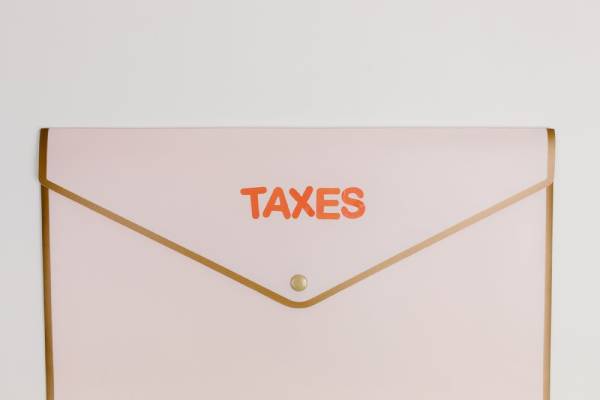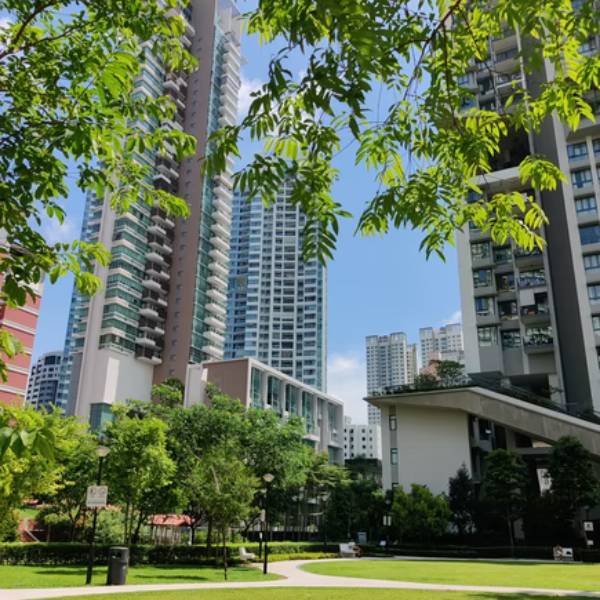Property trends Singapore 2022: 5 market trend predictions

Following a trend that began last year at the start of the Covid-19 pandemic, Singapore’s property market boomed all through 2021.
According to Minister for National Development Desmond Lee, private housing prices rose by nine per cent since Q1 2020, while HDB resale flat prices rose by 15 per cent in the same period. That’s a pretty strong showing considering that there is still no end in sight for Covid-19. (Like a bad movie series, it keeps churning out instalment after instalment…)
With the new cooling measures announced, will the property market do an about-turn? Here’s our take on what’s in store in 2022.
2021’s upward spiral of property prices can be described as a perfect storm of multiple converging factors.
First, there is the strong local demand for housing as millennial couples look to buy their first homes. But with BTO flats delayed due to border closures, the Yolo generation is turning to HDB resale flats instead, driving resale prices up.
Cashing in on surging HDB resale prices, HDB dwellers took the opportunity to sell their homes at a profit and upgrade to larger, better-located HDB flats or private condominiums. At the same time, foreign investors poured money into the safe haven that is Singapore’s property market, driving demand up for luxury properties.
The cherry on top? Low mortgage interest rates, which make purchasing property even more attractive than before.

With a property market threatening to spin out of control, it’s no wonder that the government got increasingly anxious towards the end of 2021.
We started seeing signs of this back in October when HDB announced a new Prime Location Housing Model to discourage house flippers from balloting for centrally-located BTO flats.
Then, on Dec 16, 2021, the Ministry of National Development (MND) announced a spate of property cooling measures to keep housing affordable for Singaporeans:
The question is: what will these cooling measures mean for the property market in 2022? Here are five of our predictions.
The cooling measures are meant to level the playing field for the average Singaporean — the genuine homeowner who just wants an affordable place to live in. Sounds like you, right? Not only are you off the hook for most of the cooling measures, but you also stand to gain the most from them.
[[nid:560026]]
If the cooling measures work, they should reduce the red-hot demand for HDB resale flats, making them more affordable to first-timers and upgraders. In addition, MND announced a 35 per cent increase in BTO flat supply, from 17,000 in 2021 to 23,000 in 2022.
With hopefully more affordable HDB resale flats and more BTO flats to ballot for, that means 2022 should deliver more public housing options for regular people.
But first-time homebuyers should be aware of the increased down payment for an HDB housing loan from 10 per cent to 15 per cent. For those who don’t have much cash or CPF savings, the sizeable jump might necessitate more time or discipline in saving up for your first home.
Despite the increase in BTO supply, a sizeable chunk of Singaporeans will probably still opt for HDB resale flats, keeping the resale market buoyant.
That’s because construction delays are not likely to go away in 2022. With Covid-19 still hanging around like a party guest that’s outstayed its welcome, it looks like the construction sector’s manpower crunch and resulting delays may persist well into next year.
So, HDB resale flats will continue to be popular with first-time homebuyers impatient to move in as well as families looking to upgrade from their starter HDB flats after completing the Minimum Occupation Period.
With the buzz around the new Prime Location Housing Model, there is likely to be even greater interest in city-fringe HDB resale flats that are close to the ‘prime zones’ but avoid the higher MOP requirements — think Toa Payoh and Bishan.

The private property market had a healthy 2021 with 31 new launches and condo units selling like hotcakes. Many were snapped up by HDB upgraders who were newly flush with cash, while others were bought by those wanting to lock it in before property prices appreciate even more.
2022 looks set to be a quieter year for new launch condos though. For a start, there will be fewer new launch condo projects due to the limited number of government land sales (GLS) parcels.
Before the cooling measures were announced, there had been chatter about a possible en bloc sales revival — en bloc is an alternative for land-starved condo developers — but that’s been quashed by the hefty ABSD, now 40 per cent, which is imposed on developers.
As the cooling measures mainly target property investors and foreign buyers, both important segments for private developers, analysts expect condo sales to be muted in 2022. Private property prices are expected to increase only 3 per cent in 2022 instead of the previously projected 9 per cent.
On the flip side, the lull in demand and slowdown in prices also make 2022 the perfect year for genuine homeowners to shop for a unit.
Whether local or foreign, it’s property investors who are the hardest hit by the latest 2021 cooling measures.
[[nid:557370]]
With ABSD for foreigners buying any property increased to a whopping 30 per cent, 99 Group’s Head of Research Pow Ying Khuan predicts a drop in foreign demand, especially in the prime Core Central Region (CCR) favoured by wealthy foreigners.
Meanwhile, for locals looking to buy a second property for investment purposes, the ABSD has been increased to 17 per cent. This extra 17 per cent (not exactly loose change!) adds to your upfront costs, significantly diminishing your potential capital gains.
On top of that, you’ll also be restricted by the tighter TDSR, reduced from 60 per cent to 55 per cent. This threshold refers to the maximum of your monthly income you can spend on servicing debts, including mortgages, car loans and so on. The new TDSR will make it even harder for investors to service two home loans.
On the other hand, investors will no doubt be weighing the added costs against a potential revival in Singapore’s rental market in 2022.
As Singapore’s borders gradually reopen for the first time in two long years, 2022 is looking to be a strong year for the rental market. With vaccinated travel lanes (VTLs) opening up, including the all-important land VTL with Malaysia, we can expect more expats and students coming to live in Singapore soon.
Interestingly, the rental market here was buoyant in 2021 even when limited to domestic demand. Landlords here saw strong demand from local tenants such as millennials looking for their own space amid WFH rules, couples unwilling to put up with the long wait for a BTO, and HDB upgraders temporarily in-between homes.
But, with borders opening and demand spiking in 2022, rental rates may increase at an even faster pace of eight per cent to 11 per cent next year, predict analysts.
READ ALSO: Additional Buyer's Stamp Duty: What is ABSD & how much do I need to pay? (Dec 2021)
This article was first published in 99.co.